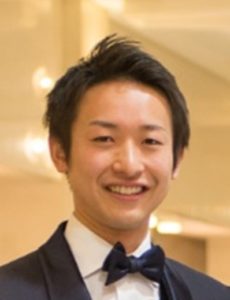 Takashi Toyao obtained his PhD from Osaka Prefecture University under the supervision of Prof. Masaya Matsuoka for the development of photocatalysts based on metal–organic frameworks and porous coordination polymers. Since 2015, He has served as Assistant Professor at Hokkaido University, where he enjoys catalysis research in an international research group with fantastic collaborators. His research interests include CO2 utilization, automotive emission control, and lower alkanes upgrading using spectroscopic, theoretical and data science approaches.
Takashi Toyao obtained his PhD from Osaka Prefecture University under the supervision of Prof. Masaya Matsuoka for the development of photocatalysts based on metal–organic frameworks and porous coordination polymers. Since 2015, He has served as Assistant Professor at Hokkaido University, where he enjoys catalysis research in an international research group with fantastic collaborators. His research interests include CO2 utilization, automotive emission control, and lower alkanes upgrading using spectroscopic, theoretical and data science approaches.
Read his Emerging Investigator article “Reverse water-gas shift reaction over Pt/MoOx/TiO2: reverse Mars–van Krevelen mechanism via redox of supported MoOx” and read more about him in the interview below:
How do you feel about Catalysis Science & Technology as a place to publish?
I am very excited because Catalysis Science & Technology is a leading journal in the field of catalysis. I am also grateful to the co-authors who not only made this possible but made it an extremely pleasant and joyful journey.
What aspect of your work are you most excited about at the moment and what do you find most challenging about your research?
I am looking forward to continuing my work on the low-temperature reverse water-gas shift (RWGS) reaction we explored in this most recent publication as well as on reactions that would help to solve energy and environmental issues. We try to seamlessly integrate experiment, theory and data science to realize catalysts development and to gain a better understanding of on structure-performance relationship. I hope these activities would lead to establishing a new methodology that accelerate paradigm shift away from the use of traditional catalysis research where trial-and-error methods are already reaching the limit
In your opinion, what are the most important questions to be asked/answered in this field of research?
I think that rational catalyst design would be the most important. The discovery of truly novel catalysts and catalytic reactions is a formidable task, and as a result, many of the advances in this field of catalysis have arisen from trial-and-error investigations which are often too resource intensive and intellectually frustrating. Establishing effective and accurate catalyst design guides through the fundamental understanding of catalytic processes could accelerate the development of novel catalysts.










